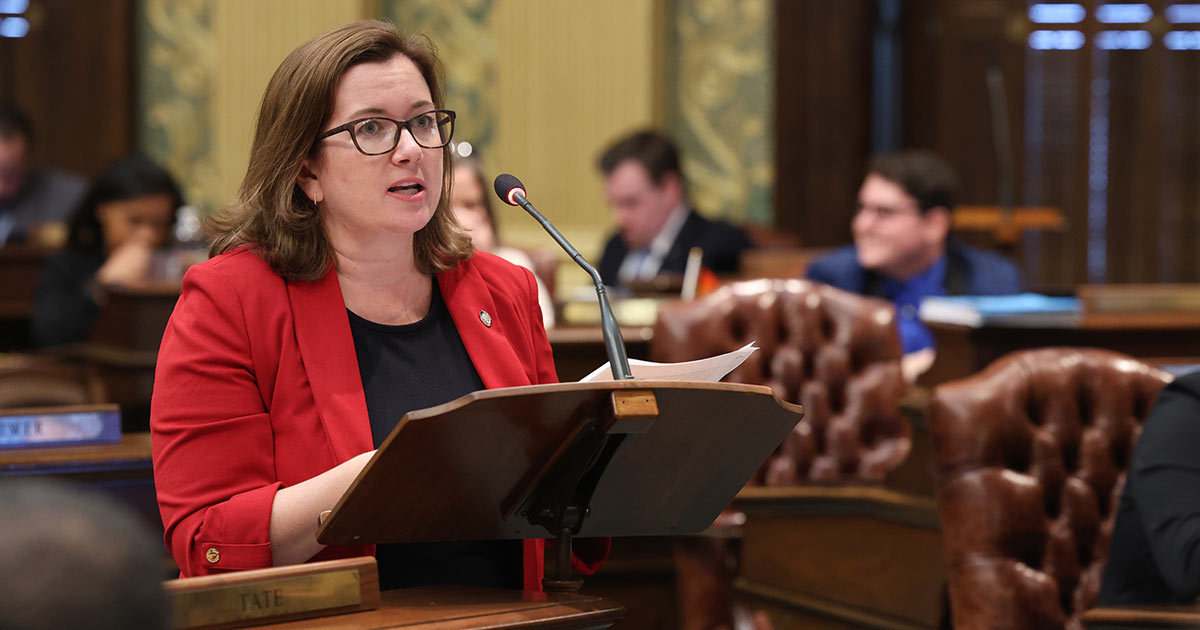End of COVID public health emergency today may lead to reduced coverage
LANSING, Mich., May 11, 2023 — State Rep. Natalie Price (D-Berkley) introduced House Bill 4579 today to help ensure that medical patients still have access to telemedicine visits. Under the COVID-19 public health emergency (PHE), Medicaid and private insurers were given more flexibility to expand telemedicine coverage. With the federal government ending the PHE today, access to telemedicine is at risk.
“The ability to see health-care providers via telemedicine during the pandemic was a lifeline for so many patients,” Price said. “We need to act swiftly to ensure that insurers will continue to cover telemedicine as an option to help maintain the best access possible for the people of Michigan.”
According to the Kaiser Family Foundation, telehealth represented less than 1% of all outpatient care before the pandemic. During the peak of the pandemic, from March to August of 2020, that figure skyrocketed to 40% of mental health and substance abuse outpatient care and 11% for other provider visits.
“Increasing access to behavioral health care is a huge priority of mine as a clinical psychologist in the Legislature,” said state Rep. Felicia Brabec (D-Pittsfield), who introduced House Bill 4580. “This legislation is a game changer, not only for physicians and behavioral health workers, but for folks who rely on regular outpatient care to manage their chronic or mental health conditions. The use of telemedicine has skyrocketed over the past few years, and it’s absolutely crucial that we maintain telehealth coverage for Michigan patients.”
While telemedicine is often perceived as a less expensive option than traditional doctor visits, studies have shown that the cost of administering and monitoring telehealth systems results in little to no overall savings. The legislation Price and Brabec are introducing would require Medicaid and private insurers to reimburse providers for telemedicine visits at the same rate as traditional in-person visits.
“Gaining access to behavioral health services is critical for many Michiganders. With the expiration of the public health emergency, thousands of people will be unable to access care; the legislation introduced by Rep. Price and Rep. Brabec will allow people to access care not only in-person or by computer but by phone and other audio devices. Not everyone has access to transportation, and not everyone has access to a computer or Wi-Fi. When passed, this legislation will open access to behavioral health services in both urban and rural communities. If it does not pass, thousands of people, many in underserved communities, will not have access or their choices for services will be limited,” said Dr. Catherine Liesman, chief executive officer of Development Centers and chair of the MI Behavioral Health & Wellness Collaborative.

